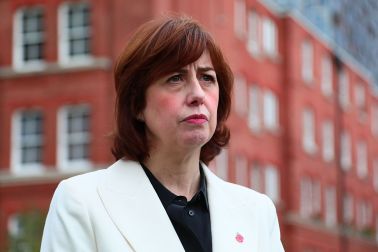The most common lie you hear on the telephone is the one in which a recorded voice says, ‘Your call is important to us.’ Do not be fooled. Your call is not important to anyone, except to the extent that it warns an organisation that you would like to talk to one of its employees. Alarm bells go off, drawbridges are pulled up, and procedures are put into effect to ensure that you are thwarted in this presumptuous ambition. Members of staff then return to their peaceful routines, such as flirting with each other on the internet.
Companies pretend to put their customers first, but everyone knows that they don’t. Their normal priority is to arrange things for their own comfort and convenience. Elaborate systems are set up to protect their employees from the outside world and to see that they suffer as little aggravation as possible. Another corporate objective is to hold costs down, and this also means keeping contact with customers to a minimum. Most outsiders find these internal company arrangements fiendishly difficult to understand, but they disregard them at their peril.
It is like being back at school. Obedience to the rules is insisted upon, and failure is heavily penalised. If you order something by telephone, you are charged more for it than if you do so on the internet. If you try to pay by cheque, you will probably just be told that you can’t. A friend of mine wanted to give some money to St John’s Ambulance when a representative knocked on her door in Northampton the other day. She offered cash or a cheque, but neither was acceptable. Her only option was to sign a Direct Debit form, which she declined to do. Even charities torment and frustrate their would-be benefactors.
To penetrate the thicket of rules and conventions protecting companies from their customers is difficult for everyone, but for the old it is particularly hard. We oldies may be incompetent users of the internet. We may be confused by the recorded instructions issuing from call centres in Bangalore. We may be roused to counterproductive rage by the seemingly pointless complications that are sent to aggravate us during what might otherwise have been the tranquil evening of our lives. True, we may occasionally achieve little victories: the banks were at least persuaded to postpone their decision to end their 350-year-old practice of accepting payment by cheque. But in general the odds are all stacked against us.
One of the problems with getting on a bit is that you tend to lose things. You might expect such senile incompetence to be viewed with sympathy or compassion, but it isn’t. I have had a particularly bad fortnight during which I lost both my car key and my bank debit card, on each occasion at Milton Keynes station where I always park my car for train journeys back and forth between London and my home in Northamptonshire. As a member of the Automobile Association for nearly 50 years, I got the AA to come and make me a new key, which it did most efficiently; but it charged me nearly £200.
As for the debit card, this was a sadder story. I wouldn’t have lost it in the first place if it hadn’t been for a station official who decided to ‘help’ me operate the automatic ticket machine, thereby slowing me down so much that I risked missing my train and got into such a fluster that I left the card behind. As soon as I got to London, I telephoned directory enquiries to ask for the number of Milton Keynes station so that I could call it and ask if the card had been handed in at the ticket office. I was told there was no such number available, for it was forbidden to call the station from outside. Instead, I was given the London number of a railway lost property office.
To call an office in London when my card was in Milton Keynes seemed like a doomed enterprise, but I did it all the same; and I went on doing it repeatedly for a couple of hours, always to be answered by a recorded voice saying that neither my call nor a message could be taken and that I should try again later. Eventually I rang the headquarters of the London Midland Railway company, which manages Milton Keynes Station, to be told that any lost property found there was always dispatched instantly to the lost property office at Euston, which turned out to be the same place that I had been trying unsuccessfully to telephone. (This seemed a very odd arrangement: what if I had been travelling from Milton Keynes to Glasgow? Would I have had to go back to London to retrieve my debit card?)
Next morning I started ringing the Euston lost property office again, and this time the line was busy. But eventually a man did answer. When I asked him sweetly if he might have my debit card, he laughed and said he had no idea; and that, anyway, it could often take a week or two for lost property to arrive there from Milton Keynes. So I then did what I should have done in the first place — rang my bank and cancelled the card.





Comments